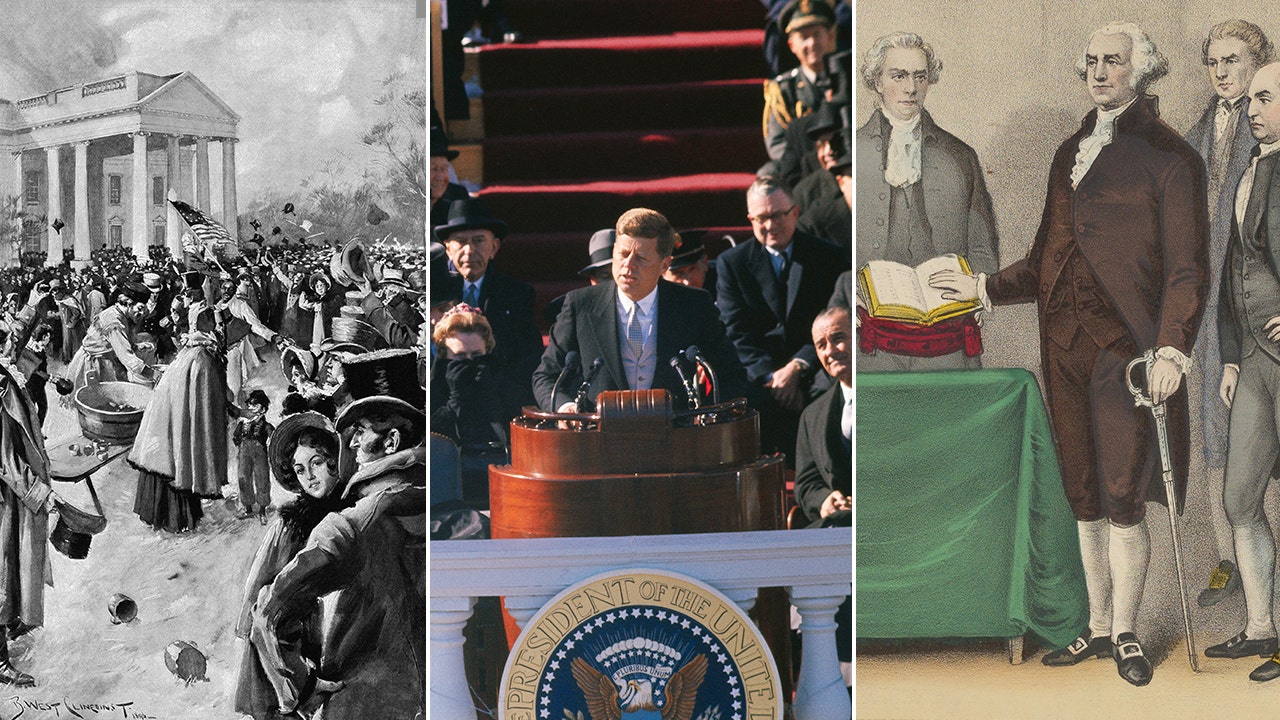CNN
—
In what has become an unexpected annual tradition for a coastal city in Maine, gigantic inflatable ducks are once again floating in Belfast Harbor, and for the third year running, the mystery of how they got there has yet to be solved.
The massive yellow ducks first appeared in the summer of 2021, when a single yellow duck with the word “joy” written on it appeared over the harbor for a few weeks, according to Scott Smith, operations manager for the Belfast Area Chamber of Commerce.
The duck’s debut drew attention from astonished locals and visitors, and even garnered national attention, Smith told CNN.
“It was great just to have something fun, charming and simple that really brought a lot of happy feelings and positive energy,” he said.
Last October, the original duck was replaced by an even larger version with the words “greater joy” written across its front, photos from the Belfast Area Chamber of Commerce showed.
This year, an inflatable family of three has waddled into the harbor as the previous years’ toys were joined by the largest duck thus far, labeled “greatest joy.”
“We don’t know who owns them, we don’t know where they come from or how long they’ll be here,” Smith said.
The three ducks’ appearance on Monday sent the chamber’s social media aflutter, according to Smith.
“We had people tagging us, ‘the ducks are back, the ducks are back,’” he said.
Across Belfast, a city of around 6,000 people, the ducks’ surprise appearances over the past three years has caught on.
“You’ll see little rubber duckies all over town; you’ll find (them) on bookshelves in local stores, or you’ll see them on top of a gas pump,” Smith said. “They just appear everywhere now.”
Even people from out of state are in awe of the huge floating objects. A woman from Nebraska recently called the chamber office to verify the ducks were still floating, according to Smith.
“She wanted to make sure they were still here because she was driving from Nebraska this week just to come to Belfast,” he said.
The chamber also joined in on the duck craze, including a photo of the “greater joy” duck from 2022 on the cover of its annual guide.
“Our book’s been flying off the shelf this year,” Smith said.


























/cdn.vox-cdn.com/uploads/chorus_asset/file/25822586/STK169_ZUCKERBERG_MAGA_STKS491_CVIRGINIA_A.jpg)

/cdn.vox-cdn.com/uploads/chorus_asset/file/23935558/acastro_STK103__01.jpg)


/cdn.vox-cdn.com/uploads/chorus_asset/file/25826211/lorealcellbioprint.jpg)
/cdn.vox-cdn.com/uploads/chorus_asset/file/25832751/2192581677.jpg)
